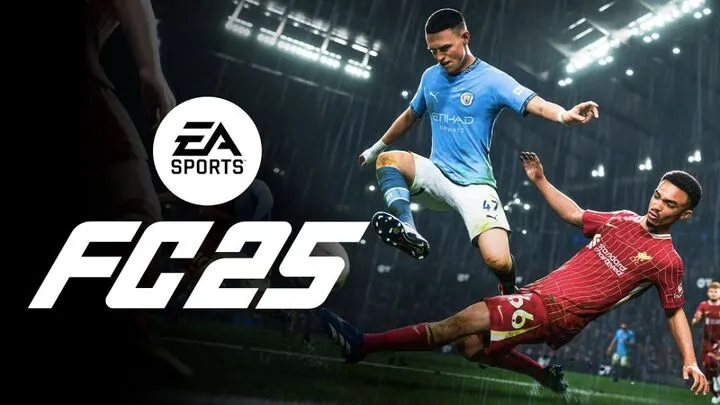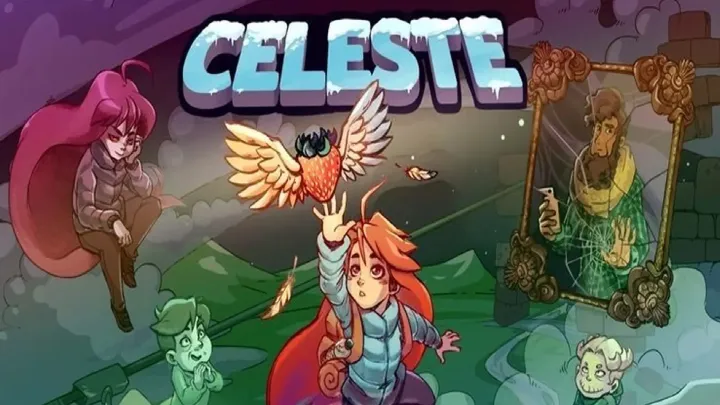When most people think of Fish It, they imagine a relaxing fishing simulation—an idle game for unwinding, maybe a digital pond where patience earns progress. But beneath its surface simplicity, Fish It is something far stranger and more profound. It’s a quiet meditation disguised as a casual game—a psychological portrait of solitude, persistence, and the human longing for meaning in repetition.
This isn’t an article about catching the biggest fish or upgrading your gear. This is about what Fish It really feels like: the rhythmic stillness of the game’s world, the strange comfort of its silence, and the emotional evolution of the player as they spend hours gazing into digital waters.
1. The Surface Stillness: A World That Refuses to Rush
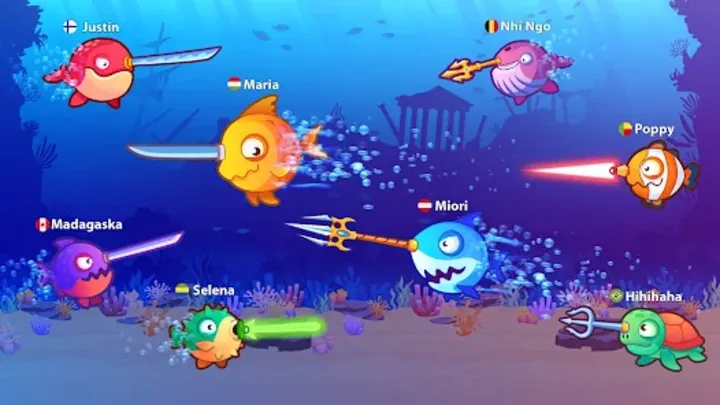
When you first open Fish It, it doesn’t demand anything of you. There’s no timer pushing you forward, no score flashing in your face. The pace is slow, almost defiantly so. You sit by a tranquil lake—or maybe on a lonely pier—and cast your line into the still water.
What strikes you is the absence of noise. The world breathes softly. A breeze moves the surface, the sound of distant birds lingers in the background, and your avatar waits. The world doesn’t care about progress or competition—it invites contemplation.
In that way, Fish It rejects everything modern gaming usually rewards. Instead of stimulation, it gives you stillness. Instead of constant rewards, it offers patience. And slowly, that quiet begins to change how you experience time itself.
2. The Ritual of Waiting
At its heart, Fish It is about waiting. You cast, you watch, and you wait for the small tug of life beneath the water’s surface. That moment—when the line trembles—isn’t just mechanical. It’s emotional. The silence before the catch feels like a breath held too long, a moment suspended between control and chaos.
This waiting becomes ritualistic. You start to find rhythm in the repetition, calm in the uncertainty. The act of fishing ceases to be about the catch and becomes about surrender—about learning to be patient, to be still, to accept that not every cast will yield reward.
Fish It subtly teaches mindfulness without ever naming it. It lets you sit with boredom until it turns into peace.
3. Loneliness as Design Philosophy
Every sound in Fish It reminds you of your solitude. The lapping water, the rustle of reeds, the occasional splash of an unseen creature—it’s a conversation with emptiness. There are no bustling towns or lively NPCs. Just you and the endless blue.
That loneliness isn’t accidental. It’s designed to make you confront yourself. The still lake becomes a mirror, reflecting the player’s inner state. The more time you spend in that silence, the more it feels like an emotional landscape rather than a physical one.
In a strange way, Fish It is a game about being alone without feeling lonely. It transforms solitude from something heavy into something sacred.
4. The Hidden Story Beneath the Surface
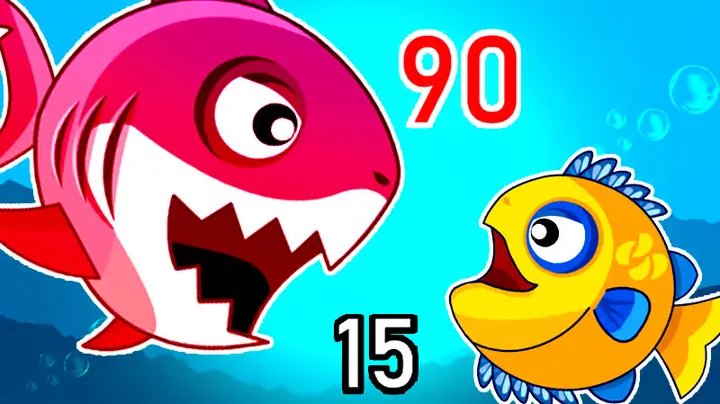
Unlike most games, Fish It doesn’t present its story outright. There are no cutscenes, no dialogue boxes, no scripted quests. Instead, it tells its story through the environment, the behavior of the fish, and the subtle changes in light and weather.
At dawn, the water glows gold, promising renewal. At dusk, shadows stretch across the lake, and the world feels heavier, more introspective. The fish themselves evolve over time—rare, ghostlike species appearing only after long stretches of quiet persistence.
Through these shifts, Fish It whispers a wordless narrative about endurance, transformation, and the unseen life that thrives in silence.
5. The Psychology of Repetition
Fishing, in both real life and Fish It, is repetitive. You cast, you wait, you reel, you repeat. But repetition doesn’t mean monotony—it means rhythm. And rhythm, when done well, creates trance.
As hours slip by, Fish It begins to feel meditative. You lose track of progress bars and achievements. You stop thinking about outcomes and simply exist within the cycle of cast and catch. Psychologically, this is powerful. It mimics the process of flow state—where the mind becomes fully absorbed in a task, dissolving stress and self-consciousness.
The game never tells you that you’re meditating—but that’s exactly what’s happening.
6. Sound and Silence: The Language of Water
The audio design of Fish It deserves special mention because it’s the true storyteller. Every sound is deliberate: the soft plunk of a lure, the ripple of the water, the distant echo of a frog. The game’s minimalist soundtrack fades in and out like a tide—it’s not there to entertain but to breathe with you.
The real star, though, is silence. Silence in Fish It is alive. It amplifies the tension before a catch, it deepens your focus, and it builds an emotional connection with the space around you.
In a world of noise and constant alerts, Fish It reintroduces silence as something beautiful—and necessary.
7. The Philosophy of Control and Surrender

Every cast in Fish It is a negotiation between control and surrender. You control where the line lands, but once it’s in the water, the rest isn’t up to you. You can’t force a fish to bite. You can only wait.
This dynamic becomes a metaphor for life itself. We plan, we act, we hope—but the results are never guaranteed. The lake, like the world, has its own rhythm. Sometimes you catch something extraordinary. Sometimes nothing at all.
Learning to accept that uncertainty—to find peace even when the line stays still—is the quiet wisdom Fish It imparts.
8. The Unseen Depths: Symbolism and Interpretation
Beneath the literal fishing gameplay lies a deeper metaphor. The lake represents the unconscious mind, the vast unknown within us. Each cast is an attempt to pull something hidden into the light—an emotion, a thought, a forgotten memory.
The different species of fish can be seen as aspects of self: some familiar, some strange, some that appear only in darkness. As you descend deeper into rarer waters, Fish It begins to feel less like a game about catching fish and more like a descent into your own mind.
It’s a symbolic journey of discovery—and maybe even healing.
9. The Emotional Weight of Reward
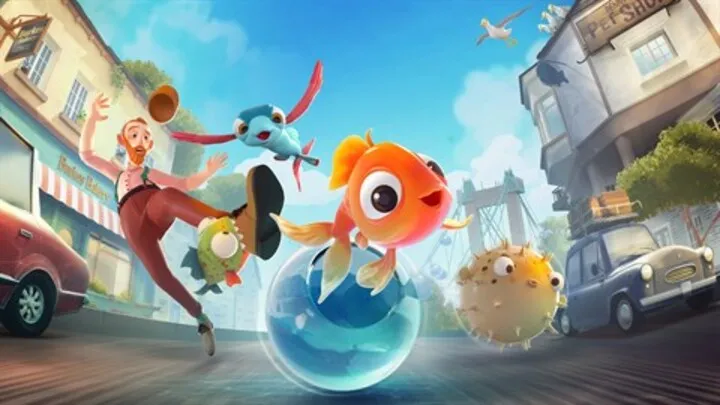
When you finally catch something rare, the game doesn’t celebrate it with fireworks or loud music. It gives you a quiet acknowledgment. Maybe the fish glows softly. Maybe the water ripples differently. The reward is emotional, not mechanical.
This subtlety is what gives Fish It its soul. The game understands that true satisfaction doesn’t come from points or trophies—it comes from connection, from feeling like your patience and attention mattered.
By stripping away the usual dopamine-driven systems, Fish It invites you to rediscover what fulfillment actually feels like.
10. Reflection: The Still Lake as a Mirror
After hours of play, you begin to realize Fish It isn’t about fishing at all. It’s about you—your mind, your rhythm, your willingness to sit with silence and uncertainty.
The lake becomes a mirror. The longer you look into it, the more it looks back. You start to notice how your emotions affect your patience, how your thoughts wander, how the smallest sounds comfort you.
Fish It transforms digital leisure into a quiet act of introspection. It’s not escapism—it’s a return to presence.
Conclusion
Fish It might appear, on the surface, as a simple, relaxing fishing game—but it’s actually one of the most profound emotional experiences in modern gaming. Through its minimalist design, patient pacing, and deliberate silence, it becomes a meditation on solitude, control, and the quiet beauty of waiting.
It asks nothing of you but your time—and in return, it gives you something rare: stillness. The kind of stillness that modern life rarely allows.
In the end, Fish It isn’t just a game you play. It’s a feeling you remember. A quiet reminder that beneath all our striving, all our noise, and all our ambition, there’s a lake waiting within us—calm, deep, and endlessly alive.












